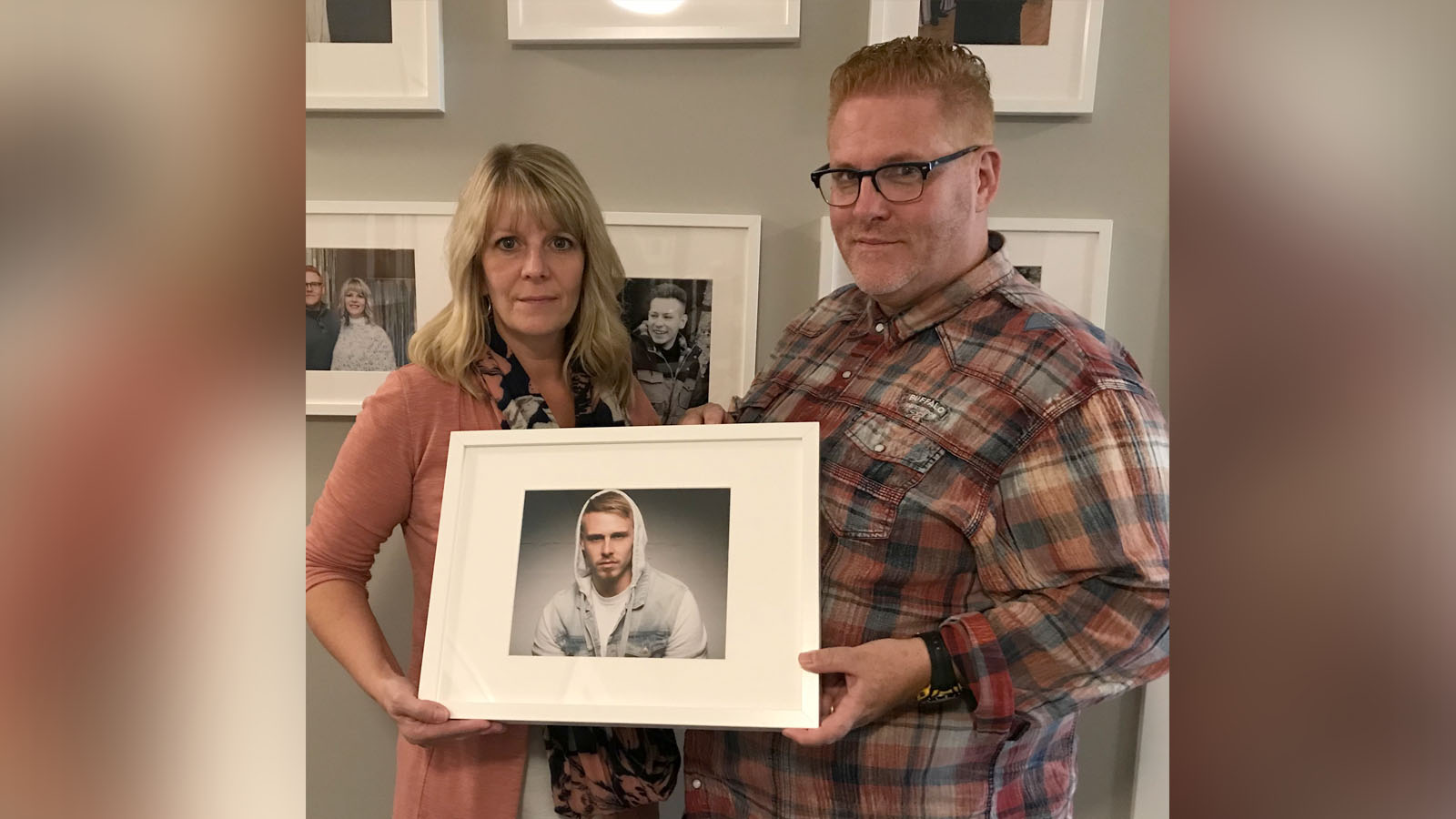Mental Health
Pastor who lost son to speak at ‘Evening of Hope’
Grieving parents share son's battle with mental illness as they move forward after his death

caption
Garret's photo, taken by Paul Girvan, is displayed with family memories in the Conway's Halifax home.Rev. Russ Conway gave his first mental health talk at a youth event. He showed a photo of a young man wearing a hoodie and asked the teens to describe the person in the picture.
Their answers included “so confident,” “handsome” and “has life all together.”
“Actually, this is my oldest son, and he took his life because all the things you see in the picture, he couldn’t see in his mind,” Conway says.
Garret Conway’s struggle with mental illness started in 2013, during his third year studying theology at California Coast Bible College in Ventura, Calif. His parents lost contact with him for about four weeks. Related stories
When they finally connected, they flew Garret home to Nova Scotia early in December for Christmas. He was deeply depressed and didn’t return for the next semester. It took a year for Garret to be diagnosed by a psychiatrist with bipolar mood disorder.
“He would take his medication that was prescribed for him, and then he would feel better and go off of his medication,” says his mother, Yanna Conway from her Halifax home.
According to Statistics Canada, men take their lives at three times the rate of women and more than 90 per cent of people who die by suicide have a mental or addictive disorder.
Yanna Conway says her son cared about others and was a gifted musician. The photo her husband shared at the mental health talk was supposed to be Garret’s album cover.
“That was a huge outlet for him to take what he was going through and write it into poems or songs,” she says.
Struggling with addiction
By the summer 2016, the Conways became aware Garret was using cocaine. He asked for help.
Garret went to a Canadian faith-based addiction treatment centre for seven months due to his addiction. This was followed by a short visit to another centre in the U.S., before returning to the original centre in late 2017.
“He had definite periods where he was clean,” says Yanna Conway, her eyes filling with tears. “In the middle of everything that he was struggling with, I think Garret was a very brave person.”
Three months before Garret’s death in March 2018, his family doctor initiated an involuntarily stay at the Nova Scotia Hospital. Yanna Conway was appointed by the hospital to be Garret’s decision maker.
He would tell his parents those three weeks were “the best three weeks of his life,” says Russ Conway.
“He was making steps. He got a new job,” says Yanna Conway. “Our friends offered up their basement apartment for him.”
‘If you know the future’
“When you are struggling with the aftermath of suicide, as a parent especially, the biggest battle that you’ll face is: we did the wrong thing,” Russ Conway says.
“What I’ve had to work through is that I wouldn’t change telling him the truth, even if he couldn’t make the truth work.”
The Conways have promised each other their marriage will remain strong, despite their loss. They find comfort in their faith and go to counselling.
“If you know the future, you would make different decisions, but none of us are able to do that, so we really felt strongly that we were helping him,” Yanna Conway says.
The day before Garret’s death, he went to the emergency room voluntarily. He received treatment and was released.
At Garret’s request, his parents were not informed by the hospital. This is because he was an adult and the conditions of his previous involuntary hospital stay did not go beyond the three weeks he was admitted.
“I feel that if I had been able to talk to the people in emergency, I could have changed their mind (about Garret’s release),” Yanna Conway says.
Even though Garret was 24 years old, his parents believe his file should have continued to list his mother as his decision maker due to his illness.
“I think some of these kids are crying out for somebody to step in and help them because they feel powerless,” says Russ Conway. “We’re saying, ‘if somebody’s diagnosed there (by a medical professional), average laws should not affect them.’”
‘Make their voice known’
Dr. Stan Kutcher, a mental health expert with the IWK and Dalhousie University, says deciding how much support to give a child of any age is “the dilemma since the beginning of time for any parent.”
“There are times when a person with a mental illness is not capable of making the best decisions about their own care, and second and third parties need to help with that,” says Kutcher.
Involuntary admissions to hospitals are an example of a shift in attitude about patient care, says Kutcher. He sees this as a more balanced approach, but more legislative changes are needed.
“Competency is both a medical and a legal definition,” he says. “These issues are exceedingly complicated. It’s very important for parents to make their voice known.”
Healing to help others
The Conways realize there is no time limit to their grief. They rely on support from their family, friends and church.
“Any advocating that we may feel called to do later is only going to be effective coming from a healed heart. I think the pain you’ll carry with you always,” Russ Conway says.
“We believe that this is probably going to alter our life journey.”
Russ Conway will be speaking at an Evening of Hope for Survivors of Suicide Day at Saint Mary’s University on Friday.


E
Evelyn Dugger
D
David Whittaker